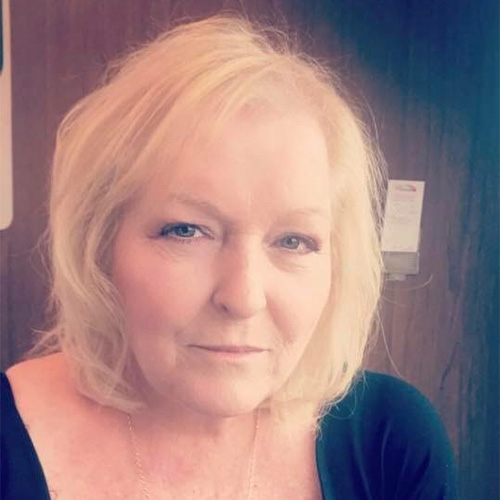News and updates from A Practical Guide to Best Practice Symptom Control & Management in End of Life Care, chaired by Professor Adrian Blundell, Member, Guideline Development Group, Clinical Guideline on Care of the Dying Adult, NICE & Consultant Geriatrician, Professor in Medicine of Older People Nottingham University Hospital.
Follow the event on Twitter #EoLSymptoms
Putting personal experience first
 Kay Smith
Kay Smith
VR Patient By Experience and Author of “When the Drugs Don’t Work”
• ensuring engaged, informed individuals and carers
• improving information about symptoms, what to expect and decision making
at the end of life and engaging people in preferences for symptom management
• how can we help ensure all care is personalised
• new approaches – VR for pain control at the end of life
Opening the Conference today is Kay Smith, speaking about putting personal experience first and how to ensure all care is personalised.
Kay opened up the session introducing herself, her journey and patient experience. Her focus of the session was to ensure dignity and compassion at the end of life. She highlighted the importance of patient centred care and how it is important to ensure all aspects of care - physical, mental, spiritual are all met with empathy.
Following on Kay then discussed the opportunities and benefits of Virtual Reality (VR) technology in end of life care. She discussed how these opportunities can include allowing 'bucket lists' to be ticked off at greater ease, especially during Covid where travel to areas is currently restricted. The VR systems allow patients support with the following;
- Pain relief
- Buckey lists
- Mental Health
- Mindfulness and Peace
- Acceptance
- Spiritual awareness
- Staff training (to allow staff to understand)
Kay highlighted Rescape Innovation an organisation which helps incorporate VR to help healthcare professionals.
Nutrition and Hydration within the Dying Phase including Clinically Assisted Nutrition and Hydration
 Dr Angela Halley
Dr Angela Halley
Consultant in Palliative Medicine
The Royal Marsden NHS Foundation Trust
• hydration and nutrition in the last days of life- guidance and evidence
• the role of clinically assisted hydration may relieving distressing symptoms associated with dehydration
• making decisions about CANH - the BMA/RCP Guideline and Framework
• ethical and legal considerations of withdrawing hydration and nutrition at the end of life in clinical practice
• discussing and assessing hydration with patients, family and staff at the end of life
Angela Halley’s session discussed the importance of Nutrition and Hydration within the last days of life. She started the session with an overview of guidance.
Following on from this Angela used multiple case studies to support the session which allowed delegates to learn from practice and studies. She discussed Parental Nutrition (PN), definitions, understanding and guidance for Parental Nutrition in Parental malignancy. The statement from British intestinal Failure Alliance (2017) was highlighted and then moved on to discuss Which patients with Advanced malignancy will have the best chance of survival and quality of life.
Quality of Life indices on PN maintained until 2 months before death
– Suggests that only those who live > 3 months may benefit from PN in terms of quality of life
(Bozzetti F et al. Quality of life and length of survival in advanced cancer patients on home parenteral nutrition. Clin Nutr. 2002 Aug;21(4):281-8)
To summarise;
- Individualised care plan and symptom management
- Discussion needs to take place about hydration and nutrition within context of discussions around end of life
- Family/Carers involvement key
- Review symptoms regularly and change medications as needed
- Review hydration and nutrition status regularly and discuss with patient and family
- Use team around the patient to support end of life care and symptom management: family, carers, GP, DN, hospice, hospital support team
